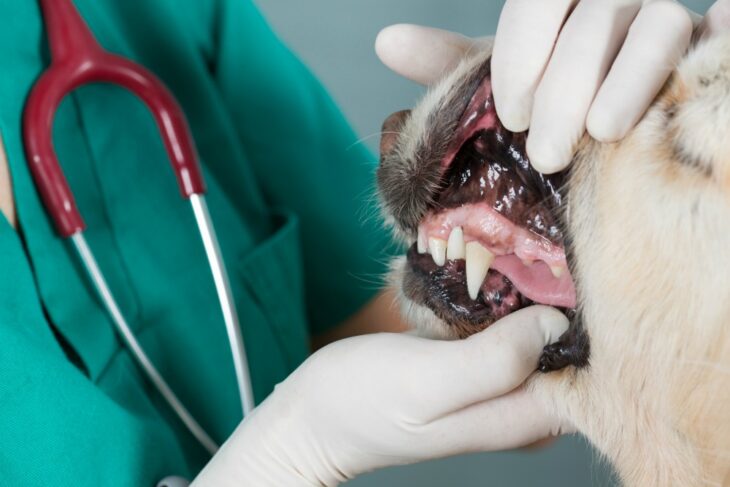For many first-time dog owners, the excitement and anticipation of puppy love cause many well-meaning people to overlook the true nature of canine companionship. Though adopting a furry friend is a funfilled endeavor, the flip side comes with responsibility, lifestyle adjustments, and unpredictable chaos.
Being responsible for another living thing is a huge commitment, and it won’t be a pleasant experience if you’re overly confident or if you’re terrified of messing up pet parenthood. If you’re inching closer to pet adoption but want to make sure you know exactly what you’re in for, read on for seven mistakes fresh-faced pet owners frequently make.
Contents
1. Failing to consider breed
Often, overexcited potential owners fall victim to cuteness over personality when adopting a dog, leaving them in a stressful, potentially dangerous situation. Different breeds require drastically different care regarding grooming, activity level, and attention.
For example, high-energy Golden Retriever puppies like these often need much more exercise and consistent fur trims than a low-energy and maintenance breed like the Basset hound or Bulldog. To ensure you select a feasible breed, take inventory of your lifestyle and research beginner-friendly dogs before diving head-first into the deep doggy end.
2. Not offering enough exercise or activity

Source: loveyourdog.com
Many first-time dog owners find themselves in for a while ride when they finally bring home their hyperactive bundle of fur. Even low-maintenance pups need regular physical and mental exercise to remain happy and healthy, with some high-energy dogs requiring intensive activity. So, make sure you’re honest about your physical abilities and select a canine companion that matches your lifestyle.
For example, if you live in small apartment, it’s paramount that you go outside with your dog for daily walks, or else they’ll start to feel cooped up and restless. Restless dogs can equal torn couch cushions, messy accidents, and shredded toilet paper rolls for you, not to mention a lot of anxiety for your dog. Playing and walking your dog is vital to ensure they remain healthy, happy, and away from your tearable, chewable belongings.
On the flip side, you also don’t want to overwork your dog. Hunting dogs will run and play for hours without tiring, but smaller dogs may become overwhelmed if you try to walk them through a busy park or neighboorhood for an extended period. Research your dog’s breed and ascertain their exercise needs before adoption. After adoption, pay attention to your dog’s body language during exercise so that you know when your pup is ready to call it quits.
3. Feeding improperly
Ensuring your furry friend receives the proper nutrients can be challenging for beginner dog owners lacking knowledge and experience. Each dog requires unique dietary needs depending on breed, age, weight, and medical conditions, which can be taxing for owners to track.
By speaking with a trusted vet, researching your pup’s breed, and investing in high-quality kibble, you reduce the risk of potential health complications.
4. Neglecting dental health

Source: 4pawsveterinaryhospital.com
An often-overlooked cost of owning a dog is dental exams, with many owners avoiding dental care altogether.
Unfortunately, dogs can develop tooth decay as young as two to three years old due to a lack of proper maintenance. So, make sure you clean your pup’s teeth regularly and schedule annual dental checkups to prolong gum and bone health.
Many dogs will resist tooth cleaning at first, so you may need to ease your dog into the process. You can start with dog treats geared towards dental hygiene. Next, let your dog lick bits of the dog-friendly toothpaste from your fingertips to get accustomed to the taste. You can start brushing your dog’s teeth with your finger before graduating to a bristle toothbrush once they’re comfortable with the procedure. Brushing your dog’s teeth is as much for you as it is for him: after all, who likes waking up to puppy breath every morning?
Dogs that grow up without a healthy dose of socialization often inherit behavioral issues manifesting as aggression, anxiety, and reactivity. When adopting a furry friend, make sure you take the time to introduce your pup to unfamiliar animals and people in a controlled environment to ensure their safety and those around you.
If your pup balks at the idea of going to the dog park, you can always start slowly with a single other dog in a quiet area before graduating to larger groups of dogs and people. Some dogs will always be nervous around strangers, and that’s okay, as long as the dog is not overly frigthened or aggressive when meeting new people or animals. If your dog is highly reactive to strangers, you might consider hiring a trainer to help you work through any underlying behaviorial issues.
6. Letting the dog lead the pack

Source: dogsbestlife.com
Dogs are pack animals, operating under a hierarchy in most cases. When you allow your canine companion to rule the house, you can unintentionally enable poor behavior and invite potentially dangerous situations.
Make sure you set a foundation of trust, respect, and healthy discipline to maintain control of and bond your pup. You can spoil your dog with treats and toys, but don’t forget to speak firmly and confidently when your pup gets into something he shouldn’t. Dogs may be our fur babies, but we’re still top dog when it comes to our own homes.
7. Being inconsistent with rules
Though it may be hard to follow through with rules and punishments when your furball is peaking up at you with hard-core puppy eyes, remaining consistent is critical for their success. Chaotic routines and ever-changing training techniques can confuse impressionable pups, undoing progress and ruining trust.
Wrapping up
Though you should strive to keep mistakes to a minimum, first-time dog owners should expect bumps in the road from time to time. By conducting adequate research, taking an inventory of your lifestyle, and learning on the go, you can build a relationship of trust and companionship with your four-legged friend. Now that you’re briefed on the most common mistakes that first-time pet parents make, you can go out confidently knowing that you’ll be less likely to follow in their paw prints.
